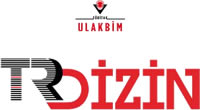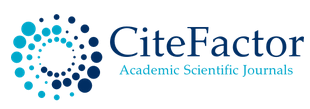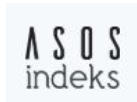Sınıf Öğretmenlerinin İlk Okuma Ve Yazma Öğretimine Yönelik Öz Yeterlik İnançlarının Değerlendirilmesi (Evaluation of Primary School Teachers’ Self-Efficacy Beliefs in Teaching of Emergent Literacy)
Anahtar Kelimeler:
İlk okuma ve yazma öğretimi- sınıf öğretmeni- öz yeterlikÖzet
Bu araştırma sınıf öğretmenlerinin ilk okuma ve yazma öğretimi öz yeterlik inanç düzeylerini belirlemeyi amaçlamaktadır. Araştırmada nicel ve nitel verilerin bir arada kullanıldığı karma desenli bir çalışma yürütülmüştür. Nicel veriler “İlk Okuma Yazma Öğretimine Yönelik Öz Yeterlik Ölçeği” ile, nitel veriler ise yarı yapılandırılmış görüşme soruları ile toplanmıştır. Çalışmanın evrenini 2016-2017 eğitim-öğretim yılında Ankara ili Yenimahalle ilçe sınırlarındaki resmi ve özel ilköğretim okullarında çalışan 1547 sınıf öğretmeni oluşturmaktadır. Çalışma örneklemini ise söz konusu evren üzerinden tabakalı örnekleme yöntemi ile seçilen 348 sınıf öğretmeni oluşturmaktadır. Araştırmanın nicel veri sonuçlarını desteklemek amacıyla, örneklem grubundan ölçüt örnekleme yöntemiyle seçilen 15 kişi ile nitel veri toplanması için görüşme yapılmıştır. Araştırmadan elde edilen nicel veriler istatistiksel olarak analiz edilmiştir. Nitel veriler ise, bilgisayar ortamına aktarılıp nitel veri analiz yöntemlerinden betimsel analiz yöntemi benimsenerek incelenmiştir. Araştırmanın sonucunda sınıf öğretmenlerinin ilk okuma yazma öğretimi öz yeterlik inanç düzeyleri çok yüksek bulunmuştur. Kadın sınıf öğretmenlerinin, erkek sınıf öğretmenlerine göre ilk okuma yazma öğretimi öz yeterlik inanç düzeyleri pozitif anlamda farklılık göstermektedir. Sınıf öğretmenlerinin birinci sınıf deneyimi sayıları arttıkça ilk okuma yazma öğretimi öz yeterlik inançları da artmaktadır. Mesleki kıdemlerine göre 1-4 yıl kıdeme sahip sınıf öğretmenlerinin ilk okuma yazma öğretimi öz yeterlik inanç puanlarının diğer mesleki kıdem gruplarındaki sınıf öğretmenlerinden düşük olduğu, mesleki kıdem arttıkça sınıf öğretmenlerinin ilk okuma yazma öğretimi öz yeterlik inancının, 1-4 yıl arasındaki kıdeme sahip sınıf öğretmenlerine göre, arttığı sonucuna ulaşılmıştır.
Referanslar
Akar, C. (2008). Öz yeterlik inancı ve ilk okuma yazmaya etkisi. Uşak Üniversitesi Sosyal Bilimler Dergisi, 1(2), 185-198.
Aşkar, P., & Umay, A. (2001). İlköğretim matematik öğretmenliği öğrencilerinin bilgisayarla ilgili öz-yeterlik algısı. Hacettepe Üniversitesi Eğitim Fakültesi Dergisi, 21(21), 1-8.
Babaoğlan, E., & Korkut, K. (2010). Sınıf Öğretmenlerinin öz yeterlik inançları ile sınıf yönetimi beceri algıları arasındaki ilişki. İnönü Üniversitesi Eğitim Fakültesi Dergisi, 11(1), 1-19.
Bandura, A. (1986). Social foundations of thought and action a social cognitive theory. Englewood Cliffs, New Jersey: Prentice- Hall.
Bandura, A. (1993). Perceived self-efficacy in cognitive development and functioning. Educational Psychologist, 28(2), 117-148.
Bandura, A. (1997). Self-efficacy: The exercise of control. New York: Freeman.
Creswell, J.W. (2006). Understanding Mixed Methods Research, (Chapter 1). https://www.sagepub.com/sites/default/files/upm-binaries/10981_Chapter_1.pdf
Delı̇can, B. (2016). İlk okuma yazma öğretimine yönelik öz yeterlik ölçeğinin geliştirilmesi. Electronic Turkish Studies, 11(3), 861-878.
Eker, C. (2014). Sınıf öğretmenlerinin öz-yeterlilik inanç düzeyleri üzerine bir araştırma. Uşak Üniversitesi Sosyal Bilimler Dergisi, 7(1), 162-178.
Erdoğan, O. (2013). İlköğretim öğretmenlerinin öz yeterlik ve başarı algılarında yordayıcı olarak akademik iyimserlik, umut ve mesleki haz. (Yüksek lisans tezi). https://tez.yok.gov.tr sayfasından erişilmiştir.
Karasar, N. (2012). Bilimsel araştırma yöntemi. Ankara: Nobel.
Koç, C. (2013). Sınıf öğretmenlerinin öz yeterlik algıları ve yapılandırmacı öğrenme ortamı oluşturma becerilerinin incelenmesi. Hacettepe Üniversitesi Eğitim Fakültesi Dergisi, Özel sayı (1), 240-255.
Korkmaz, İ. (2008). Sosyal öğrenme kuramı. B. Yeşilyaprak (Ed.), Eğitim Psikolojisi (s.
-242). Ankara: Pegem.
Küçük, M., Altun, E., & Paliç, G. (2013). Sınıf öğretmenlerinin fen öğretimi öz-yeterlik inançlarının incelenmesi: Rize ili örneklemi. Amasya Üniversitesi Eğitim Fakültesi Dergisi, 2(1), 45-70.
Pajares, F., ve Schunk, D. H. (2001). Self-beliefs and school success: Self-efficacy, self- concept, and school achievement. In R. Riding ve S. Rayner (Ed.), Self-perception (s. 239-266). London: Ablex.
Sakız, G. (2013). Başarıda anahtar kelime: Öz yeterlik. Uludağ Üniversitesi Eğitim Fakültesi Dergisi, 26(1), 185-209.
Schunk, D. H. (2004). Learning theories an educational perspective. New Jersey: Pearson Prentice Hall.
Woolfolk, A. E. (2014). Education psychology, Twelfth Edition, New Jersey: Pearson. Yeşilyurt, E. (2013). Öğretmen adaylarının öğretmen öz yeterlik algıları. Elektronik Sosyal Bilimler Dergisi, 12(45), 88-104.
Yıldırım, A., & Şimşek, H. (2011). Sosyal bilimlerde nitel araştırma yöntemleri. Ankara: Seçkin.
Yayınlanmış
Nasıl Atıf Yapılır
Sayı
Bölüm
Lisans
Telif Hakkı (c) 2023 Anadolu Kültürel Araştırmalar Dergisi (ANKAD)

Bu çalışma Creative Commons Attribution-NonCommercial 4.0 International License ile lisanslanmıştır.













